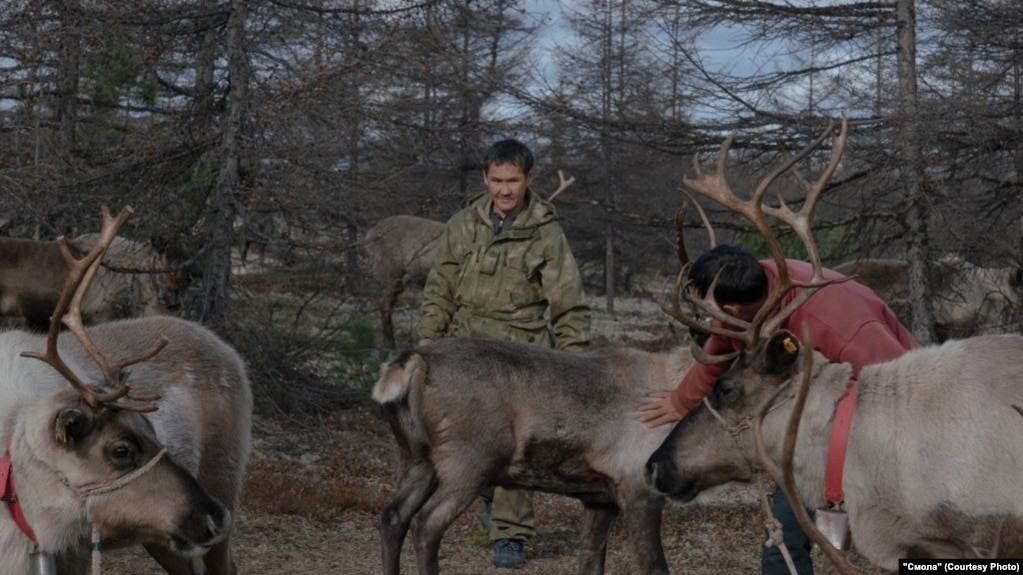The crisis of the native peoples of Sakhalin Island
An investigation by Sibir.Realii recounts the hardships in the lives of the ethnic groups that have lived in this region of the Russian Far East since time immemorial and today are grappling with serious difficulties caused by climate change and the industrial exploitation of natural resources. With the sanctions that have hit Gazprom, the authorities are no longer distributing subsidies, while their fishing grounds are being bought by the Chinese.
Moscow (AsiaNews) - The island of Sakhalin is a long and enormous territory with which Russia in the far north points the finger at Far Eastern Asia, and is populated by local ethnic groups who are going through a period of great difficulty. In the tundra of the Noglinsk province, for some months, it has been difficult to maintain the most traditional activity, that of deer breeding. Blueberries grow among the moss and yellowed grass, which are hidden at first glance, but are exposed to the sun and offer a very sweet and special taste, collected by local tribes who try to save the local fauna and flora, those of the Nivkhi and the Oroni.
The journalist and ecologist Anastasia Trojanova, together with the documentary photographer Marina Syčeva, published a report on Sibir.Realii, to try to clarify the problems that negatively influence the lives of these native peoples of the Russian Far East. They toured the island of Sakhalin, Primorje on the Pacific coast and the Khabarovsk region, where people are used to living in contact with nature and depending on its conditions, and now experience great difficulties due to climate and ecological changes, trying to adapt to situations where instead of seasonal renewal of grasses and plants there are concrete walls, steel and sewer pipes.
Many different ethnic groups have lived in the Sakhalin region since time immemorial, such as the Nanaitsy, the Orochi and the Evenki, together with the Oroni and Nivkhi. Today they are reduced to a few representatives: the Oroni are less than 300, the Nivkhi number 3,683 among all the eastern regions, the Orochi are 530, the Nanaitsy 11,668 and the Evenki 39,420, according to official statistics of all areas of Siberia. When they sit at the wheel of the car, these natives shout "Tooo-tooo!", as usually happens with herds of deer, evoking the young deer left without a mother, called Totoša and called "the deer of love", the which is not taken to the slaughterhouse, but which is taken care of until old age. In the Nivkha language, “Toto” also means “Silver”, the deer with the white coat.
Before the arrival of the Soviets, the natives of Sakhalin lived their original semi-nomadic lifestyle, roaming the taiga with deer, setting up tents for large families gathered around groups of 10-15 animals, and dedicating summer also fishing, in addition to picking berries. As a local woman, Angela Muvčik, says, "civilization and the oil industry have hit the illiterate and wild people, like a snowstorm on the head." Once the migrations through the fields ended, everyone was forced to live in small villages, even if those who could tried to return to the taiga and continue to follow the most ancient customs. Children were sent to study in boarding schools, and everyone was forced to speak Russian, forgetting their native languages.
After the end of the Soviet regime, many tried to return to life in the open air, even if deer meat is no longer eaten, rather we try to protect them in every way. Sakhalin's economy has been supported for thirty years by the oil giant Gazprom, now in serious crisis due to Western sanctions, and the local authorities no longer have funds to distribute subsidies and allow the population to live freely in the old way . There are a couple of thousand wild deer left, taking refuge in the most inaccessible areas near the western coast of the island, and we are trying to re-instill young people's passion for caring for animals and nature.
The Nivkhi are mainly fishermen, but today "the fish smells like oil", also because extraction activities have been greatly reduced, and the waste is spread without adequate recovery plans. The fishing grounds are purchased by the Chinese or by traders of various origins, and the local inhabitants are increasingly excluded from the local economy. “Something is changing in nature” says Angela, and a lot is changing in history, to the extent of excluding the small peoples of the past.
12/02/2016 15:14
07/02/2019 17:28
11/08/2017 20:05







.png)










